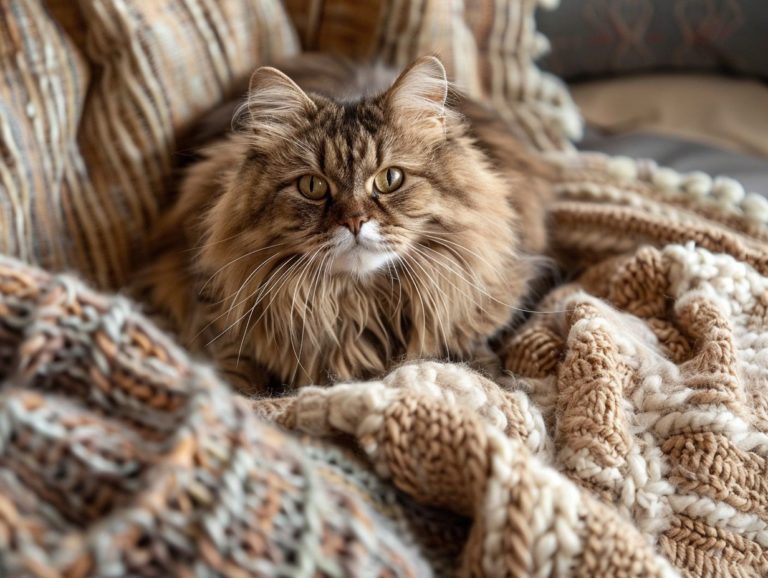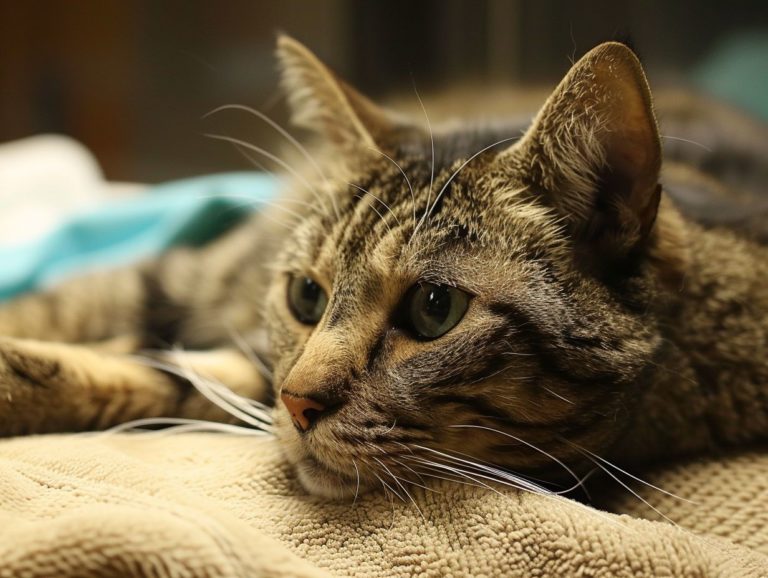Senior Cat Insurance Is It Worth The Investment
This article explores the importance of senior cat insurance and highlights key factors to consider before purchasing a policy. Senior cats often require more comprehensive and costly healthcare, making senior cat insurance essential for addressing common health issues and safeguarding against unexpected veterinary expenses.
Before buying insurance for a senior cat, it is crucial to assess factors such as your cat’s age, health condition, and the associated costs. The article also delves into the benefits of senior cat insurance, tips for selecting the most suitable policy, and alternative strategies for managing veterinary expenses for senior cats.
Key Takeaways:
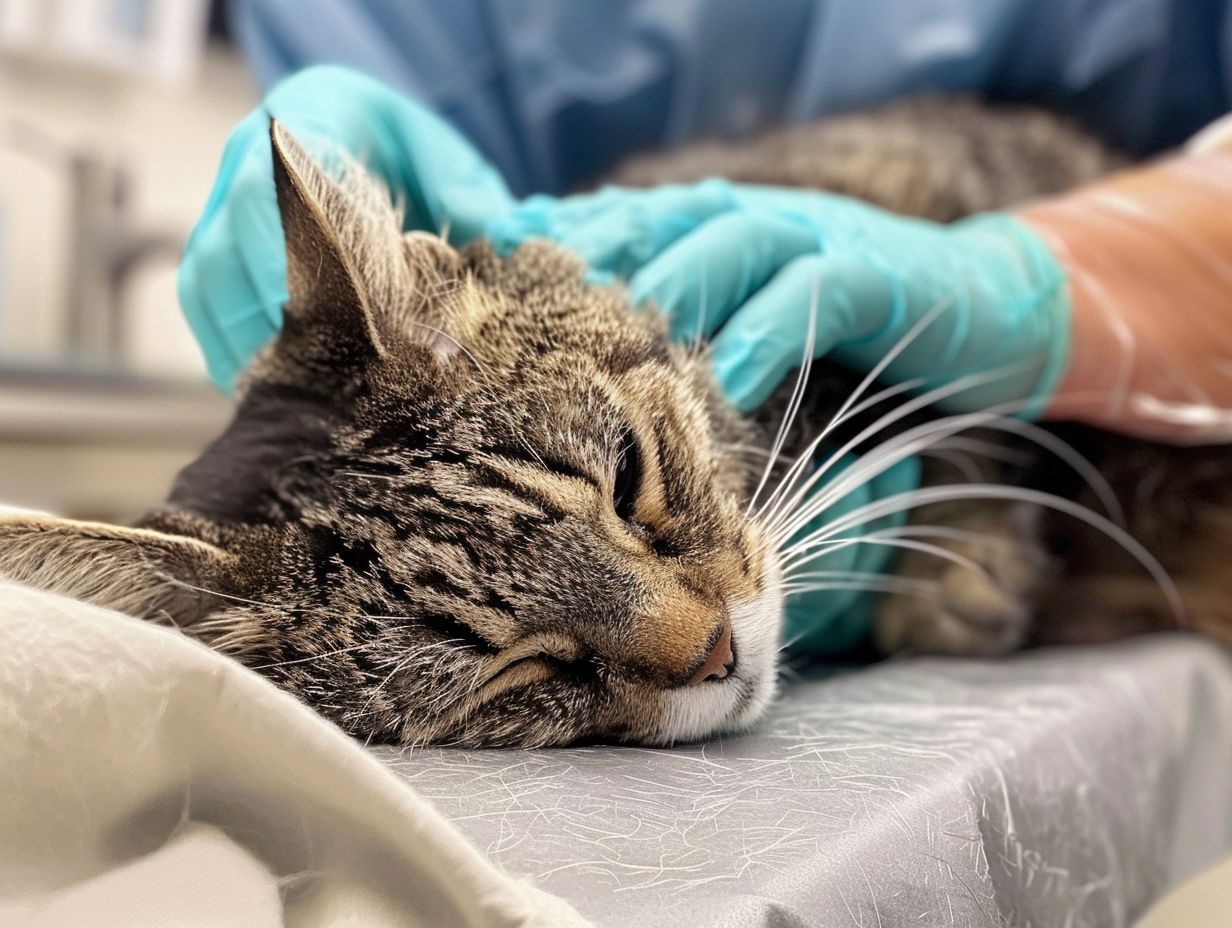
What is Senior Cat Insurance?
Senior Cat Insurance is a specific type of pet insurance policy designed to cater to the healthcare needs of older cats. As cats age, they require more care, making it essential for owners to have dependable insurance coverage. Older cats are prone to developing age-related health issues like arthritis, dental problems, and kidney disease, leading to increased medical expenses. A comprehensive insurance plan can help offset these costs and guarantee that the pet receives necessary care.
Having reliable coverage offers owners peace of mind, ensuring that their cat is protected in the event of unexpected illnesses or accidents that may arise in their pet’s later years.
Benefits of Senior Cat Insurance
Senior Cat Insurance offers pet owners numerous benefits, including:
- Broad coverage for veterinary procedures
- Reimbursement of eligible costs
- Peace of mind in ensuring that all health needs of the older cat are covered
Coverage for Common Health Issues
Senior Cat Insurance provides coverage for common health issues that older cats typically experience, including cancer, kidney disease, arthritis, and diabetes. By offering coverage for these conditions, owners can ensure their senior cats receive the best possible care. This insurance also includes coverage for common age-related ailments such as dental disease, hyperthyroidism, heart disease, and cognitive dysfunction.
This comprehensive coverage allows cat owners to address a wide range of potential health concerns as their cats age. It is considered the best insurance for senior cats as it covers the medical expenses associated with most diseases that senior cats may suffer from, providing peace of mind and enabling owners to enjoy quality time with their beloved pets without the worry of extensive veterinary costs.
Financial Protection for Unexpected Costs
Senior Cat Insurance offers financial coverage for unexpected veterinary expenses, such as accidents, illnesses, or emergency treatments. This insurance assists pet owners in managing the financial impact of caring for aging cats. As cats age, they typically require more frequent veterinary visits for check-ups, medications, or specialized treatments, which can become costly. Senior cat insurance provides pet owners with a financial safety net, enabling them to afford essential care without the burden of financial concerns. This coverage ensures that pet owners can confidently provide their cats with the necessary care they require.
Factors to Consider Before Purchasing

Before purchasing insurance for senior cats, important factors to consider include the age and breed of the cat, coverage eligibility criteria, and the reputation of the insurer. ASPCA is an example of an organization that offers specialized insurance for senior cats.
Age and Health of Your Cat
When considering senior cat insurance, the age and health status of your cat play a crucial role in determining the type of policy needed. This is because common senior cat insurance providers offer contract specifics that vary based on the pet’s age.
A cat’s age and health status are significant factors to consider when selecting insurance for your cat. Age influences the availability of insurance products, including health and liability insurance for cat owners. tailored to address the changing healthcare requirements of older cats, as well as a cat’s pre-existing health conditions and breed-related vulnerabilities that impact the coverage options.
Insurance policies typically come with varying deductibles, coverage limits, and exclusions. Understanding these aspects of the insurance policy is essential to selecting the most suitable one for your needs and being prepared to cover your pet’s healthcare expenses without financial strain.
Cost vs. Potential Expenses
When considering senior cat insurance, it is important to weigh the costs against potential savings on veterinary care. By comparing these expenses and potential savings, pet owners can make more informed decisions.
As senior cats often require more frequent vet visits as they age, leading to increased veterinary costs, having insurance can help mitigate financial burdens. Some pet insurance policies cover cat health insurance costs, regular check-ups, vaccinations, and unexpected emergencies, providing relief to pet owners.
Understanding the coverage options offered by insurance providers, including deductibles, co-pays, and coverage limits, is crucial to ensuring comprehensive coverage for your senior cat. Additionally, maintaining a separate savings account dedicated to potential medical expenses for your senior cat can complement insurance coverage and serve as a financial safety net for unforeseen health emergencies.
How to Choose the Right Senior Cat Insurance
Determining the best senior cat insurance depends on the specific terms of the policy, which include coverage limits, deductibles, reimbursement rates, and the reputation of the insurance provider. Platforms like Pawlicy Advisor assist in comparing insurance offerings from various companies to identify the most suitable option.
Key Features to Look for
A thorough understanding of key features of senior cat insurance, such as reimbursement processes, coverage for pre-existing conditions, and specific benefits for older cats, ensures comprehensive coverage for your pet.
Reimbursement processes play a crucial role in senior cat insurance policies, influencing the speed and ease of repayment for veterinary expenses. Coverage for pre-existing conditions is a vital component of insurance for aging cats, given their increased likelihood of developing health issues over time. Learn more about senior cat insurance myths vs facts.
Tailored benefit options for senior cats, like coverage for age-related conditions or wellness exams, offer added assurance and ensure optimal care for your senior feline.
Alternatives to Senior Cat Insurance
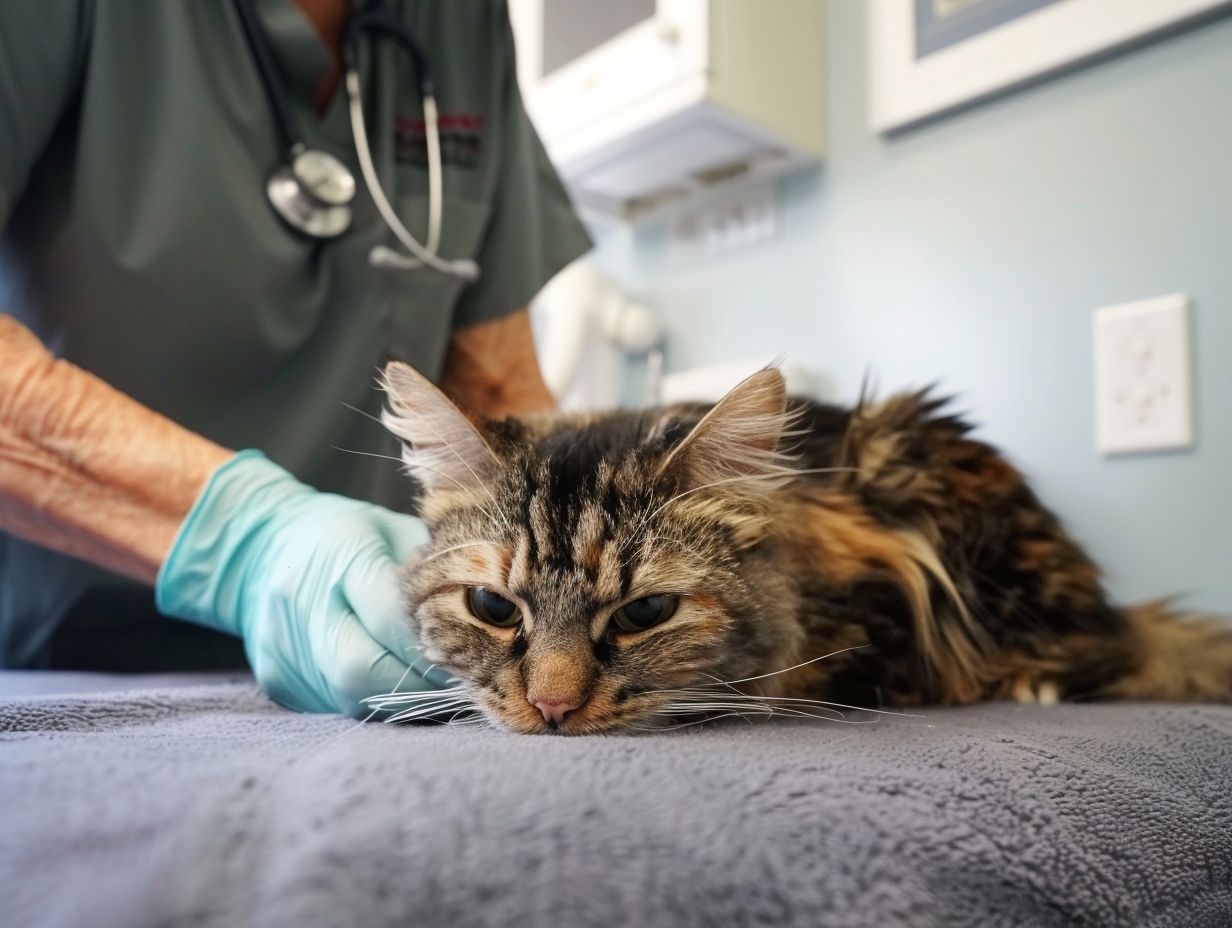
Pet owners may choose to save regularly in a separate account for veterinary expenses in addition to having senior cat insurance, in case their senior cat becomes ill.
Saving for Veterinary Costs
Pet owners can take a proactive approach by saving for veterinary costs to ensure financial readiness for the healthcare needs of older cats. Savings for veterinary costs can cover regular check-ups, treatments, and emergencies, requiring efficient financial planning. Proper budgeting for veterinary care can prevent unexpected large bills and facilitate the provision of necessary treatments free of charge.
This proactive financial planning approach promotes a sense of control over financial freedom, offering peace of mind and stability when dealing with significant healthcare expenses. Being financially prepared for the healthcare costs of an older cat through savings will contribute to their well-being and strengthen the bond between pet owner and feline.
Other Pet Insurance Options
Apart from senior cat insurance, pet owners have the option to explore various pet insurance plans offered by different providers. Obtaining quotes and comparing the covered services can assist you in making an informed decision for your cat.
When considering pet insurance for cats, it is crucial to select the appropriate level of coverage available from different providers. Besides age-specific plans, coverage may differ in terms of deductibles, reimbursement percentage, and coverage limit levels. Understanding and researching these features enables owners to tailor the insurance to meet their cat’s specific healthcare needs.
Some plans from certain providers may include additional benefits beyond medical coverage, such as wellness visit coverage, dental care, or coverage for chronic conditions. Opting for a plan that aligns with your cat’s regular care and potential health risks can offer peace of mind and financial protection.
Frequently Asked Questions
What is senior cat insurance?
Senior cat insurance is a type of pet insurance that specifically covers the healthcare needs of older cats. It helps to cover the cost of medical expenses, such as vet visits, medications, and treatments, for cats who are in their golden years.
Is it worth investing in senior cat insurance?
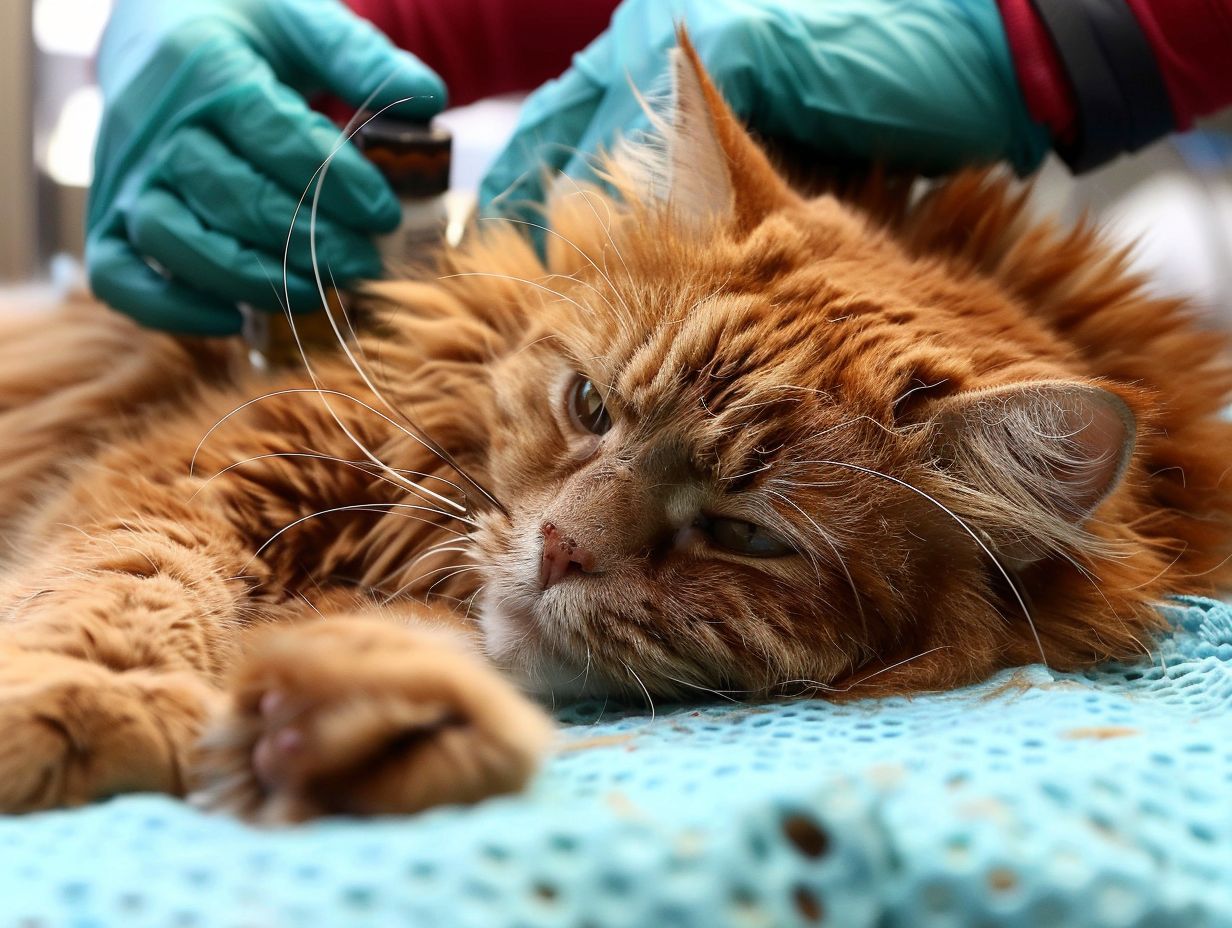
Investing in senior cat insurance can be a smart decision for pet owners who want to ensure that their beloved feline companion receives the best possible care as they age. It can save you from unexpected and potentially expensive vet bills, making it a worthwhile investment.
What does senior cat insurance typically cover?
Senior cat insurance typically covers a range of medical expenses, including illness, accidents, and routine check-ups. It may also cover hereditary or congenital conditions, as well as prescription medications and emergency care.
At what age should I consider getting senior cat insurance?
It is recommended to get senior cat insurance when your cat reaches the age of 10 or older. This is when cats are more prone to developing age-related health issues and may require more frequent and expensive medical care.
Is senior cat insurance more expensive than regular pet insurance?
Senior cat insurance can be slightly more expensive than regular pet insurance due to the increased likelihood of health issues in older cats. However, the cost of coverage is still relatively affordable and can save you money in the long run.
Are there any limitations to senior cat insurance coverage?
As with any insurance, there may be limitations to what is covered under your senior cat insurance policy. It is important to carefully read and understand the terms and conditions of your policy to ensure you are getting the coverage that best fits your cat’s needs.

